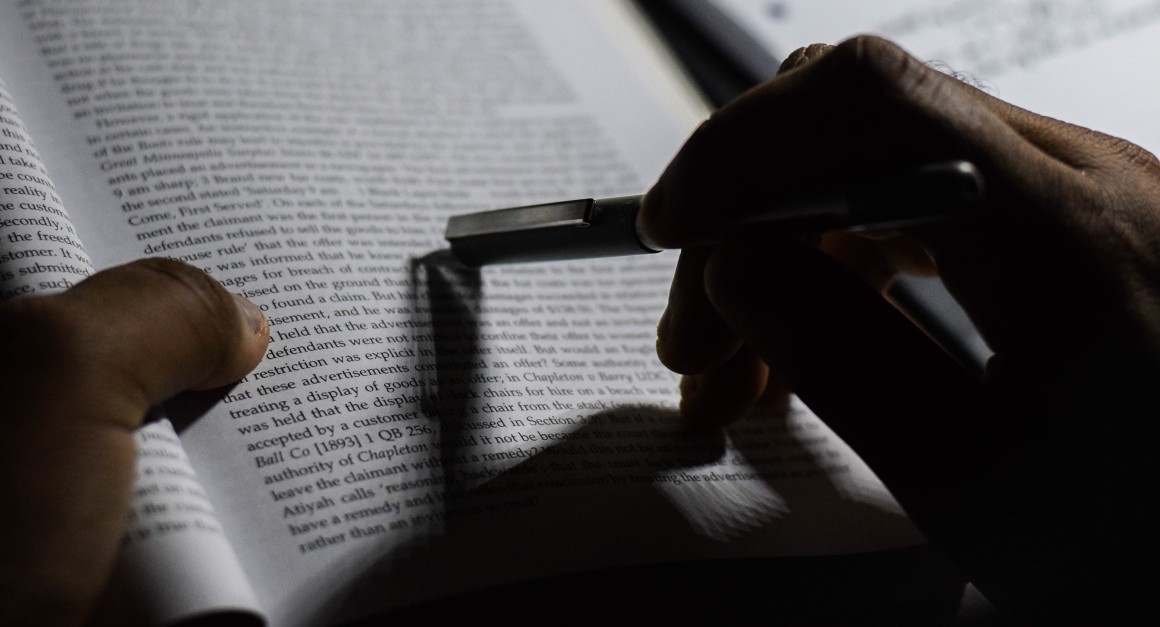
I’m a migrant and a writer. This is how trauma and a crisis of expectation shape artists like me.
As we celebrate the October 2021 Black History Month, I have found myself reflecting on how I left Zimbabwe for South Africa in the early nineties after a long stint as a Sub-Editor at the Zimbabwe Broadcasting Corporation.
I headed for what was considered in Africa as the new El Dorado during the 1980s and 90s: Johannesburg, South Africa. During that period, many journalists and other writers left Zimbabwe. Scores left before me, scores left after me and the exodus in search of greener pastures continues up to this day. The decision that I made to leave the country of my birth marked the beginning of years of life as a migrant and its accompanying crisis of expectations.
The theme of migrants and migration, which is close to my heart, appears to hold great fascination for literary critics, artistic consumers and anthologists. Probably what makes migration - and to a greater extent, political exile - an interesting subject to me are some of the questions that I am often asked wherever I go: "Now that you are living away from your country of birth, has migration affected your creativity as a writer?” and "What has the impact of being a migrant had on your writing?” Indignant, I often refuse to cooperate. I have not gone into exile, in a way I am merely away from home on some kind of sabbatical.
Similarly, in an article which appeared in The Guardian a few years ago, the Nigerian born Nobel laureate Professor Wole Soyinka said: "Surely even an exile must exist in some space physical and mental. Even more optimistically, there is that strong temptation to describe exile as simply a state of mind." To some extent I find myself agreeing with Professor Soyinka's viewpoints, since over any state of mind, we may arm ourselves with the challenging power of the will and thus negate all debilitating tendencies that threaten the ego with the inescapable fact of exile.
However, sometimes exile is indeed a place, and writers go into exile for different reasons. Take for example the case of the deceased great Nigerian author, Chinua Achebe, who is the founding father of the African novel in English. He is known across continents for his landmark first novel, Things Fall Apart, which was published in 1958.
Achebe’s exile had a different cause. In March 1990, only weeks after attending a gathering that anticipated his 60th birthday in the eastern Nigerian town of Nsukka, a car crash on the country's lethal roads left him in a wheelchair, paralyzed from the waist down. He was airlifted to Britain for surgery. His injuries were very severe, and he was advised to move to the United States for therapy. After moving to the United States for treatment, he took up a Professorship at Bard College in Annandale-on-Hudson, New York. In 2009, Achebe left Bard to join the faculty of Brown University in Providence, Rhode Island.
"I thought I would go home to Nigeria after a year," Chinua Achebe recalled in his clapboard bungalow on campus at Bard College. "But home has simply gone from bad to worse in terms of hospital facilities". Achebe added that he had severe infections, and needed proper antibiotics, not fakes. "When you say a country has broken down, that's what it means," he said.
In his novel Home and Exile Professor Achebe hankers for the homeland where his fiction is rooted. He said he longs for his home country where he could see his work cut out for him.
In my opinion, the geo-political and socio-economic reasons which drove Chinua Achebe and many other writers into exile, are very much similar to the reasons that has driven many artists from Africa and further afield into exile. Examples of other writers who are living or have lived in exile are the Uzbekistan writer, Hamid Ismailov, the late Mexican novelist and essayist, Carlos Fuentes Macias, and Mona Hatoum, who grew up in Lebanon with her Palestinian parents and became exiled in London in 2015, when the war in Lebanon began. The other notable exiled artist is Ai Weiwei, China’s most famous artist - and fiercest critic - who is based in Berlin, Germany.
Some writers who chose to remain in their countries of birth for various reasons have died, others have managed to survive and become successful in their home countries, but unfortunately there are still many who are living and working under very difficult and desperate circumstances in their home countries.
It can be noted that beneath the veneer of banality that still dominates daily life in some dictatorial countries where there is no freedom of expression an abnormal reality is growing. Gone are the casual conversations with strangers about politics. Activists work on the assumption that their phones are tapped. The secret police are more active than ever, prowling hotel lobbies and watering holes looking for artists, journalists, activists, and foreigners who may be considered to be suspicious.
Exile, which is often a very traumatic experience for writers, is now considered as one of the avenues of escapism from the harsh realities of life in many dictatorial countries on the globe. Many writers in the diaspora have accepted exile and its challenges, while others have simply set up barriers against the acceptance of the condition of exile and its geo-political and socio-economic implications. Of course, there are also many migrants and exiles who have, in my opinion, settled well in their adopted countries and are helping to make those countries a great place.

About the author
Selbin Kabote is a Zimbabwean-born Birmingham based journalist. Selbin has worked for many years as a media trainer in the UK. He worked with migrants and asylum seekers to arm them with the media tools that they need to speak in the media and in public life. The tools also enable them to create their own media platforms for the purpose of telling their stories.
Before coming to the UK many years ago, Selbin worked as a Sub-Editor for the Zimbabwe Broadcasting Corporation-ZBC in Zimbabwe and as a journalist producer for the external broadcaster of the South African Broadcasting Corporation - Channel Africa in Johannesburg, South Africa.
Selbin is an activist who believes in the power of highlighting positive arguments for migration as he is of the strong opinion that many migrants who come to settle in the UK have the will and capacity to make the country a great place.
This article is part of our Voices of the Economy series. The project brings together the economic experiences and opinions of people from a range of different backgrounds and showcases voices which are not heard as often when we talk about the economy. To find out more and share your own story, click here.



